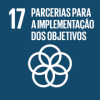Projects explore the role of art and virtual reality in promoting mental health and cognitive rehabilitation across different contexts
Sustainable Development Goals (SDG)





WeARTolerance, presented by Professor Ana Beato, makes use of artistic programmes — including theatre, cinema, visual arts and music — to increase mental health literacy and reduce the stigma associated with mental illness among young people. Based on a study involving 125 participants aged between 11 and 21, the project demonstrated significant results in reducing social distance and intergroup anxiety, as well as in increasing knowledge about mental health.
The Systemic Lisbon Battery, presented by Professors Pedro Gamito and Jorge Oliveira, relies on Virtual Reality to train and assess cognitive functions through digitally simulated everyday activities. This approach has shown promising results in the rehabilitation of people with cognitive deficits resulting from strokes, neurodegenerative diseases, or substance-related disorders. In one of the studies, patients with alcohol use disorder recorded significant improvements in executive function after 12 sessions of virtual training.
Both projects share a common goal: to create innovative, scientifically validated, and user-centred tools to improve quality of life and promote social inclusion.
Guest
Pedro Gamito – Director of the HEI-Lab: Digital Human-Environment Interaction Lab
Jorge Oliveira – Lecturer at the School of Psychology and Life Sciences (EPCV)
Ana Beato – Researcher at the HEI-Lab: Digital Human-Environment Interaction Lab
Production
Filipa Cavém
Images
Filipa Cavém and Cristo Chikale
Editing
Cristo Chikale
News
Filipa Cavém












